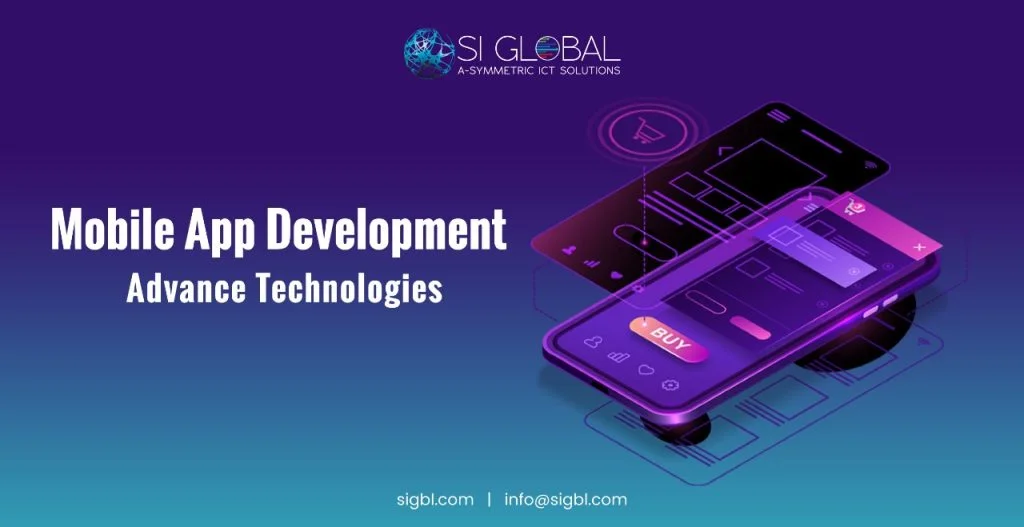Mobile app development has become a vital part of business strategy in the ever-evolving digital landscape. Whether you’re a startup looking to break into the market or a well-established company aiming to enhance customer engagement, a mobile app is your gateway to success. From boosting brand visibility to streamlining operations, the potential is endless. Let’s explore how mobile app development can revolutionize your business.
Why Mobile App Development is Key to Business Success
Today, people spend more time on their mobile devices than ever before. Mobile apps offer a direct way to connect with your audience, making it easier for customers to access your services and engage with your brand. But why exactly should businesses invest in mobile app development? Here are some key benefits:
- Increased Customer Engagement: Mobile apps provide a personalized experience for users, keeping them engaged with your products and services. Features like push notifications, in-app messages, and tailored content make building lasting relationships with customers easier.
- Boosted Revenue: Offering a seamless in-app purchase experience or subscription services can directly impact your revenue. Many businesses have reported significant sales growth through their apps.
- Brand Visibility and Recognition: A mobile app is an extension of your brand. With the right design and functionality, you can keep your business in front of your audience’s eyes 24/7.
Visit our Mobile App Development Services for more information on how we can help you leverage mobile apps to boost your business.
Types of Mobile Apps and Which One is Right for You
Choosing the right kind of app for your business is crucial. There are various types of mobile apps, each suited to different business models and customer needs. Here’s a breakdown of the three main types:
Native Apps
Native apps are built specifically for a particular platform, such as iOS or Android. These apps tend to perform better in speed and user experience, as they are designed to work with the specific operating system.
- Pros: High performance, excellent user experience, full access to device features (camera, GPS, etc.)
- Cons: More expensive and time-consuming to develop for multiple platforms.
Hybrid Apps
Hybrid apps combine elements of both native apps and web apps. They are built using web technologies like HTML, CSS, and JavaScript but can run on multiple platforms through a single codebase.
- Pros: Cost-effective, faster development, more manageable maintenance
- Cons: Slightly slower performance compared to native apps, limited access to device features
Progressive Web Apps
PWAs are web applications that behave like native apps on mobile devices. They can be accessed via a web browser but offer offline functionality and push notifications.
- Pros: No need to install, accessible across all devices, cost-effective
- Cons: Limited functionality compared to native apps
At SI Global Solution, we specialize in all types of Mobile app development. We can help you decide which option aligns best with your business goals. Check out our services to learn more.
Steps in Mobile App Development: From Idea to Launch
Developing a mobile app is a multi-step process that requires careful planning and execution. Here’s a look at the typical stages of mobile app development:
1. Conceptualization and Research
Before development begins, it’s essential to have a clear vision of what your app will do. Researching the market, understanding your target audience, and identifying your app’s key features are critical first steps.
2. Wireframing and Design
Once you have a concept, the next step is creating wireframes – these are the blueprints for your app’s structure. Following that, the design team will create visually appealing interfaces that align with your brand.
3. Development
Developers code your app’s backend and front end during the development phase. This is the most time-intensive part of the process, as it involves building the app’s core functionality, databases, and API integrations.
4. Testing
Before launching, thorough testing ensures the app is bug-free and works across all devices. Both functional and usability tests are conducted to guarantee a smooth user experience.
5. Launch and Maintenance
Once the app passes all tests, it’s ready for launch. But the work doesn’t stop there! Post-launch, you’ll need regular updates and maintenance to fix issues and add new features based on user feedback.
At SI Global Solution, we provide end-to-end mobile app development services, guiding you through every step of the process. Visit our Mobile App Development page to get started today.
Choosing the Right Mobile App Development Partner
Your choice of a mobile app development partner can make or break the success of your app. Here’s what to look for in a mobile app development company:
- Experience: Look for a company with a strong portfolio and experience developing apps for your industry.
- Technical Expertise: The team should be proficient in multiple programming languages and frameworks like Swift for iOS, Kotlin for Android, and React Native for cross-platform development.
- Ongoing Support: Post-launch support and updates are crucial. Make sure your development partner offers a solid maintenance plan.
At SI Global Solution, we are committed to delivering high-quality mobile apps tailored to your business’s specific needs. With our expert team, you can rest assured that your app will meet and exceed industry standards. Explore our solutions here.


